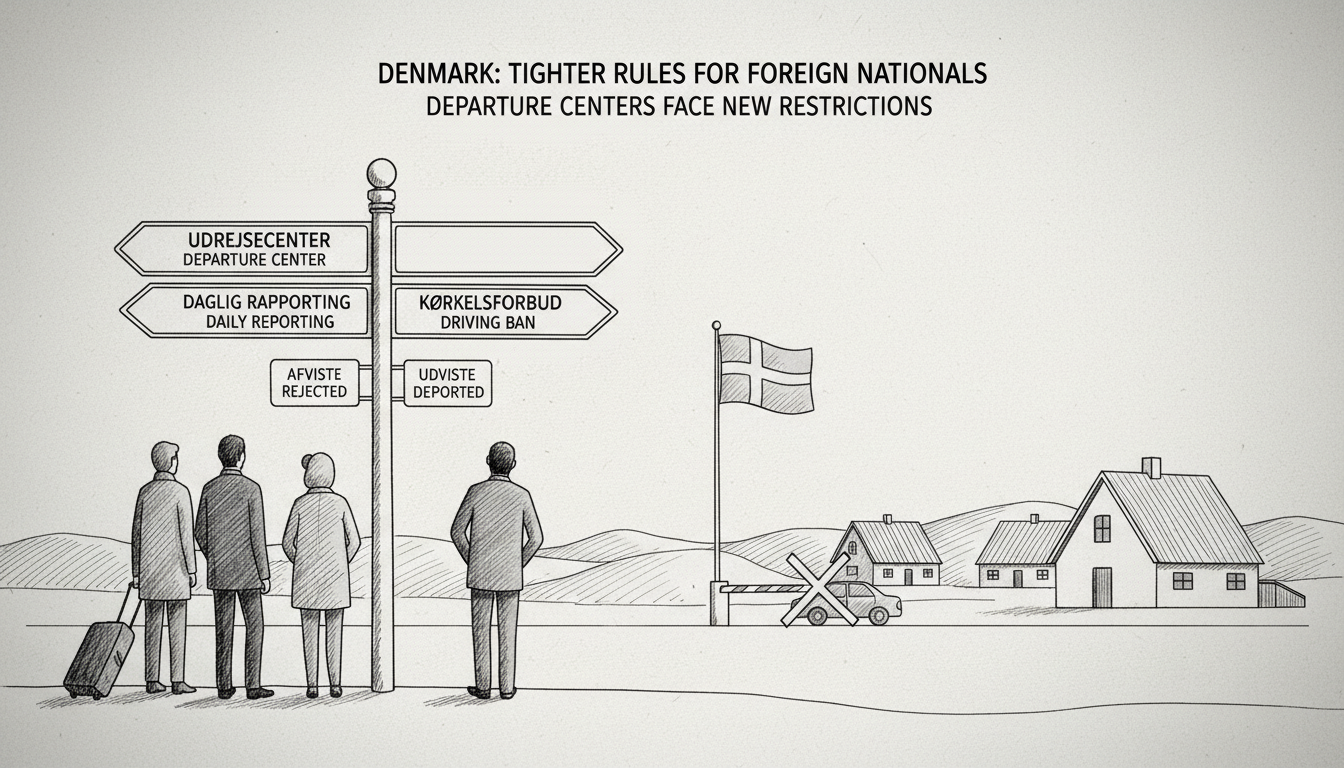Denmark has implemented stricter daily reporting requirements for deportation convicts and rejected asylum seekers. Starting in the new year, these individuals must report to authorities every day and are banned from driving vehicles.
The Danish Parliament approved the new measures on Thursday. The rules specifically apply to residents at Denmark's two departure centers. These facilities house foreign nationals who have been ordered to leave the country.
Previously, only foreigners with tolerated stay status needed to report daily. Now this requirement extends to those convicted for deportation and rejected asylum applicants. Violating the reporting obligation can result in fines or prison sentences.
The Ministry of Integration explained the reasoning behind the stricter measures. Officials want to make it more difficult for foreigners to integrate into Danish society. Integration Minister Rasmus Stoklund stated clearly that their existence should be boring and unpleasant.
No foreign national should be able to live illegally in Denmark, Stoklund said in the announcement. They should leave instead. Until they depart, their daily life should be as sad and boring as possible, and authorities must maintain control over their whereabouts.
Denmark operates two departure centers managed by Denmark's Prisons agency. These are Kærshovedgård near Ikast in central Jutland and Sjælsmark outside Hørsholm. As of mid-October, 223 foreign nationals would be subject to the daily reporting requirement.
Local residents in the Ikast area have expressed concerns about safety and thefts. Some blame the departure center residents for these issues. The government disagrees with this assessment. Officials believe the daily reporting requirement will actually benefit local communities.
Authorities argue that requiring foreign nationals to remain at the centers will reduce their movement through local areas. This could potentially decrease interactions with local residents and any associated problems.
The data reveals interesting patterns about the center populations. At Kærshovedgård, 131 out of 234 residents had been convicted of violating either the Aliens Act or the Home Travel Act. These legal violations form the basis for the reporting requirements.
This policy represents Denmark's continuing hardline approach to immigration enforcement. The country has consistently implemented some of Europe's strictest immigration policies. The daily reporting system aims to maintain constant surveillance over individuals scheduled for removal.
The driving ban adds another layer of restriction. It limits mobility and makes it harder for individuals to find unauthorized work or establish roots in local communities. Combined with daily reporting, these measures create a highly controlled environment.
Local communities remain divided about the impact of these facilities. Some residents welcome the stricter controls, hoping they will address safety concerns. Others worry about the humanitarian implications of making people's lives deliberately unpleasant.
The policy reflects broader European debates about immigration management. Denmark continues to pursue its distinctive approach, emphasizing strict enforcement and deterrence. The effectiveness of these new measures in encouraging departures remains to be seen.
What happens next will depend on several factors. Implementation will be crucial, as will legal challenges that may arise. The international community will watch how these policies affect Denmark's human rights record. Local communities will monitor whether the measures actually improve their sense of security.

